
E Komo Mai
The Department of Curriculum Studies is excited to offer a variety of graduate level summer courses! Students typically take 3-6 credits during the summer. Feel free to mix and match the courses form the list below. So, why join our summer camp for teachers?
-
Find something for everyone
-
Join a community of teacher leaders
-
Experience online formats
-
Advance your professional skills
-
Apply credits to a Graduate degree
Registration and Contact Info
Registration Info
UH students can register for Summer 2022 extension courses through STAR GPS Registration System directly or through MyUH Services. Use the course reference number (CRN) indicated below with each course for registration.
For non-UH students, please apply and register for Summer 2022 extension courses through Outreach College. After being admitted as a UH student and setting up your UH Username, you will be able to access the STAR GPS Registration System directly or through MyUH Services. Use the course reference number (CRN) indicated below with each course for registration. Students do not need to submit health forms if they are taking completely online courses.
Registration begins March 8, 2022.
HIDOE teachers are eligible to enroll in courses for reclassification credits, pending your principal approval.
Contact
csdept@hawaii.edu
Multilingual Multicultural Summer Institute
(Institute courses may be taken separately or together)
For HIDOE teachers, the two courses satisfy the “Six Credit Hour Sheltered Instruction TESOL Requirements”.
HIDOE funding is available to cover the cost of either or both courses. For instructions on how to apply for funding support, please see HIDOE November 3, 2021 Title III Sheltered Instruction Qualification Scholarship Memo. The due date to apply for the scholarship is: APRIL 4, 2022 (or dependent on if funding is available)
Instructors
Kay ʻAlohilani Okamura (School of Teacher Education), kayokamu@hawaii.edu
Course dates
June 13 – July 21 | 9:00 am – 12:30 pm Tuesday & Thursday | CRN: 4100
Description
EDCS 644 Multilingual/ EL Pedagogy examines practices, theories, research, and perspectives on multilingual/ EL teaching approaches. Topics include culturally and linguistically responsive approaches, collaboration, lesson planning, and adapting materials to promote the growth and development of multilingual/ EL learners. (cross-listed as SLS 644)
EDCS 644 Course Format
Hybrid
Meeting Times
Tuesdays (Online-Synchronous) and Thursdays (In-person option available for on island students) from 9:00 am–12:30 pm
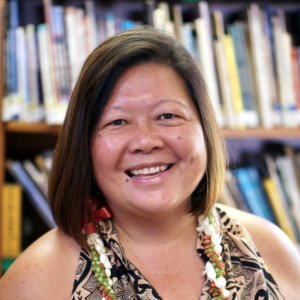 |
ʻAlohilani Okamura, EdD currently serves as the World Language and Multilingual Learner specialist at the UH Mānoa, College of Education, School of Teacher Education, Secondary. Formerly ʻAlohilani taught in the Hawaiʻi DOE and Charter Schools for 25 years teaching ʻŌlelo Hawaiʻi and Social Studies. The Social Justice and Nā Hopena frameworks bring two of her passions together- advocating for student voice while building a culture of aloha. |
Instructors
Graham Crookes & Dina Yoshimi
Course Dates (Two Sections)
Section 1: June 13 – July 22 | ONLINE (Synchronous) | 9:00 am – 12:25 pm Mondays & Wednesdays | CRN: 96900*
Section 2: June 13 – July 22 | HYBRID (Online Synchronous & In-Person) | 9:00 am – 12:25 pm Mondays & Wednesdays | CRN: 97033**
* Contact Graham Crookes (crookes@hawaii.edu) or Dina Yoshimi (dinar@hawaii.edu) to receive an override code.
** June 13th, July 6th and 22nd | 9:00 am–12:25pm | In-person for Hybrid section only
Description
This course introduces students to concepts, theories, policies, and practices of multilingual language use (spoken and written), supported by multicultural orientations and practices, within the contemporary context of Hawaiʻi as a society with substantial linguistic and cultural diversity, including indigenous populations, homegrown Pidgin speakers, sojourners and tourists, the results of successive waves of migration, colonization, and globalization. Through recognizing Hawaiʻiʻs unique features, the course also locates Hawai’i within a world in which multilingualism and multiculturalism have become (or always were) the norm in many communities.
The course will be of interest to graduate students with professional interests in language, arising from professional schools or areas such as education, law, social work, medicine, or business as well as those primarily interested in languages, multilingualism, multiculturalism, and applied linguistics.
Course Formats
Online & Hybrid
Meeting Times (Both Sections)
Mondays & Wednesdays | 9:00 am–12:25 pm
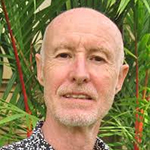 |
Graham Crookes is Professor, Department of Second Language Studies. Resident in Hawaiʻi since 1982, he is a graduate of the UHM Dept of ESL/SLS and the College of Education (Educational Psychology). |
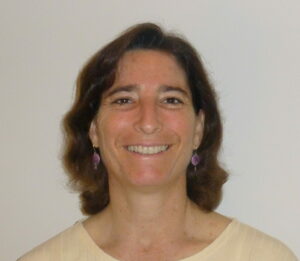 |
Dina Yoshimi is Associate Professor, Department of East Asian Languages and Literature and Director of the Hawai’i Language Roadmap. Her research explores the discourse pragmatics of everyday conversation, the linguistic expression of affective stance, and usage-based approaches to teaching a second language (Japanese). |
The Hawai‘i Writing Project Invitational Summer Institute
Instructors
Charlotte Frambaugh-Kritzer, kritzer@hawaii.edu
Stephanie Buelow, buelow@hawaii.edu
Course dates
May 11 – September 23
Description
In this course, Hawaii Writing Project teacher participants will receive practical, application-oriented support for their classroom instruction in writing. It is designed to help K–12 in-service teachers understand and experience the writing process, discuss and learn best writing practices, develop relevant writing curriculum for their classrooms, and understand and practice assessment of writing. The learning environment will be structured to include, but not limited to: synchronous and asynchronous lectures, group work, guest speakers, lesson demonstrations, and content and classroom application.
EDCS 604 Course Format
EDCS 604 is both a synchronous and an asynchronous online course featuring whole and small group work, discussion, and teacher demonstration to develop course objectives. It also utilizes technology and print sources to access course content.
Meeting Times*
We will meet “live” on the following dates/times via Zoom:
- Wednesday, May 11th | 5:00-8:00 pm HST
- Wednesday, May 18th | 5:00-8:00 pm HST
- June 1, 2, 3, 7, 8, 9 | 8:30 a.m.-3:00 pm HST
- Wednesday, September 21 | 5:00-8:00 pm HST
*Participants will also engage in asynchronous participation in Laulima throughout the week.
EDCS 604 Prerequisite
This course requires that all students apply to and are accepted to the Hawaii Writing Project Invitational Summer Institute. For more information on the application process, please visit the Hawaii Writing Project Website.
 |
Charlotte Frambaugh-Kritzer is the Director of the STE Secondary Program and an Associate Professor of Secondary Literacy Education at the University of Hawaii at Mānoa College of Education. She began her National Writing Project journey when she served as the Co-Director of the Cal State San Marcos Writing project from 2001-2003. This solidified her love for supporting teachers in finding their writing voices and writing instructional methods. As a former middle school teacher, she directly connects her experiences from the classroom to her current research and the courses she teaches in teacher education (all things related to literacy). She is also a researcher, some of her research work has appeared in the Journal of Language and Literacy Education, Journal of Literacy Practice & Research, Action in Teacher Education, Middle School Journal, and Yearbook of the Literacy Research Association. |
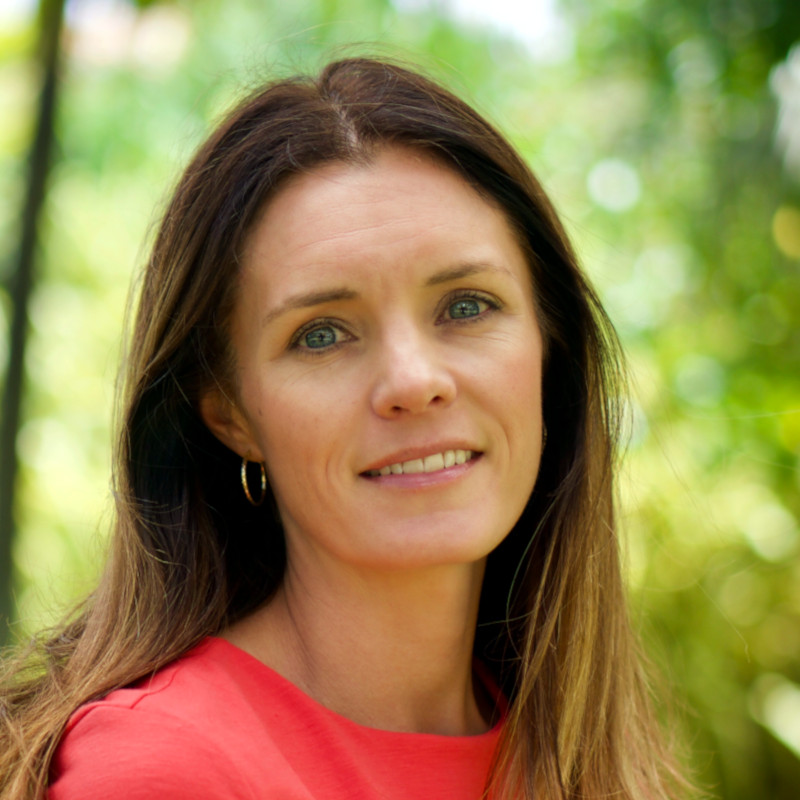 |
Stephanie Buelow is an Associate Professor of Literacy Education at the University of Hawai‘i at Mānoa College of Education. Her current work is focused on teacher preparation and literacy leadership. She teaches undergraduate literacy methods courses in a field-based teacher preparation program and graduate courses in literacy coaching and effective writing practices. Dr. Buelow’s research interests lie in disciplinary literacies, new literacies, and teacher learning and development. She draws upon twelve years of elementary teaching and literacy coaching experience in culturally, linguistically, and socioeconomically diverse schools to ground her work as a teacher educator. |
Pedagogy, Literacy & Research
Instructor
Ivee Cruz
Course dates
June 6-9, 13-17, & 20-23 (Online Synchronous) | 9:00 am – 12:00 pm | CRN: 4099
Description
This course introduces educators, community leaders, and professionals in related fields to important concepts, theories, and pedagogies of Social Emotional Learning (SEL). Topics include frameworks and skills, such as self-awareness, social awareness, self-management, responsible decision making and relationship skills. The influence of family, culture, education, work, peers, relationship, and the media as it relates to SEL will be explored with an emphasis on culture, social justice, and equity in Hawai’i and our global community.
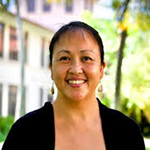 |
Ivee Cruz is an educator, facilitator, counselor, advisor, and instructor. She holds a BA in Global & International Studies and Sociology from the University of California Santa Barbara. She has a MA in International Educational Development from Teachers College, Columbia University and is currently pursuing a PhD in Education at the University of Hawaiʻi at Manoa. Her work bridges culture, diversity, spirituality, social justice, youth leadership, mindfulness and consciousness within the field of education. |
Instructors
Dr. Stephanie Buelow, buelow@hawaii.edu
Course dates
May 24 – July 2 | Tuesday 5:30 – 7:00 pm | CRN 4075
Description
Do you desire to be a literacy leader? A literacy coach? Do you possess the dispositions of a literacy leader? EDCS 605 explores these questions, adult learning theory, and the practical experiences of the leadership role and responsibilities of the literacy specialist. This includes literacy intervention, development and evaluation of curriculum, instruction, and professional in-services, as well as leadership and coaching in school and community settings.
EDCS 605 Course Format
EDCS 605 is both a synchronous and an asynchronous online course, featuring whole and small group work and discussion, utilizing technology and print sources to access course content.
Meeting Times*
“Live” on Thursdays from 5:00–7:30 pm HST via Zoom on the following dates:
- May 25, 2021
- June 1, 2021
- June 8, 2021
- June 15, 2021
- June 22, 2021
- June 29, 2021
*Participants will also engage in asynchronous participation in Laulima throughout the week.
 |
Stephanie Buelow is an Associate Professor of Literacy Education at the University of Hawai‘i at Mānoa College of Education. Her current work is focused on teacher preparation and literacy leadership. She teaches undergraduate literacy methods courses in a field-based teacher preparation program and graduate courses in literacy coaching and effective writing practices. Dr. Buelow’s research interests lie in disciplinary literacies, new literacies, and teacher learning and development. She draws upon twelve years of elementary teaching and literacy coaching experience in culturally, linguistically, and socioeconomically diverse schools to ground her work as a teacher educator. |
Instructor
Dr. Brooke Taira
Course dates
May 24 – July 2 | Hybrid Format with biweekly synchronous sessions | CRN 4183
Course Format
Online
Description
The course will introduce theoretical frameworks and expansive understandings of literacies and texts as tools for meaning-making, connection and social change. With sustainability as our central theme, we will engage with local resources to explore ecological challenges in Hawai‘i and beyond. Together, we will apply our learning to our classrooms, schools, and local contexts by designing educational resources and experiences that promote equity and sustainability.
 |
Dr. Brooke Ward Taira is an Assistant Professor of Literacy Education at the University of Hawaiʻi at Mānoa. Her research focuses on literacy and migration, specifically the experiences and literacy practices of transnational students in secondary literacy classrooms. Her work explores the potential of asset-based and culturally responsive teaching approaches to create inclusive and engaging literacy classrooms. |
Instructor
Dr. John Creswell
Course dates
July 6*, July 9, July 11-14, July 18-22 | 9:00 am – 1:00 pm | CRN: See below.**
* July 6 – Students submit one page overview of a proposed project [draft title, problem, data collection (quan and qual), and how they propose to use the project (dissertation proposal, class research project, academic journal article, fun study, etc.)]
** Department Chair and Student Advisor approvals are required for CRN. Please contact Dept. Chair, Dr. Patricia Halagao at phalagao@hawaii.edu.
Course Format
In-Person
Description
Mixed methods research is designed for advanced PhD students in education and social sciences considering combining qualitative and quantitative research. Covers philosophical and practical implications culminating in a mixed methods dissertation/thesis proposal.
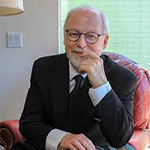 |
John Creswell is a professor of family medicine and co-director of the Michigan Mixed Methods Program at the University of Michigan. He has authored numerous articles and 28 books on mixed methods research, qualitative research, and research design. He founded SAGE’s Journal of Mixed Methods Research. In 2014, he was the President of the Mixed Methods International Research Association and co-authored the American Psychological Association “standards” on qualitative and mixed methods research. |
Hawaiian Education
Instructor
Keanu Sai
Course dates
May 23 – July 1, 2022 (Online Synchronous) | 10:30 am – 11:45 am MTWRF | CRN*
* This course is being offered through NHSS Summer Institute program. Please apply through NHSS here by the April 22, 2022 deadline. Please contact Nalani Balutski for any questions at balutski@hawaii.edu.
Description
This course covers the origins and features of the Hawaiian State. Starting with Hawai‘i’s roots as a navigator society, this course explores the island kingdoms of Kaua‘i, Maui and Hawai‘i island. Detailed interaction between Hawaiians and navigators from other countries around the world such as Cook and Vancouver open up an investigation through the reign of Kamehameha I and II. Kamehameha III’s decision to establish a constitutional monarchy, achieve State recognition and develop a modern nation State are examined further through the eighty-eight year period of Hawaiian governance. The course will then examine, through political science and law, the continuity of the Hawaiian State despite the illegal overthrow of its government by the United States on January 17, 1893, and the significance of the Larsen v. Hawaiian Kingdom arbitration held at the Permanent Court of Arbitration, The Hague, Netherlands from 1999-2001.
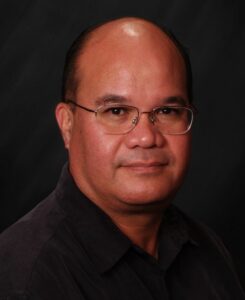 |
Keanu Sai is a political scientist and lecturer at the University of Hawai‘i Windward Community College, Political Science and Hawaiian Studies, and affiliate faculty member at the University of Hawai‘i at Mānoa’s College of Education. He also served as Agent for the Hawaiian Kingdom at the Permanent Court of Arbitration, The Hague, Netherlands, in Larsen v. Hawaiian Kingdom, PCA case no. 1999-01. Dr. Sai received his Ph.D. and M.A. degrees in political science specializing in international relations and law from the University of Hawai‘i at Mānoa. |
Instructors
Larson Ng (Lng@hawaii.edu) & Kimo Cashman (Kcashman@hawaii.edu)
Course dates
July 5 – August 12, 2022 (Hybrid) | 4:30 pm – 7:00 pm, Tuesdays and Thursdays | CRN: 97081
Meeting Times
Tuesdays & Thursdays | Asynchronous
Only July 5, 7, 12, 14, 19, & 21 | Synchronous | 4:30 pm – 7:00 pm
Description
In a joint partnership with the Hawaiian Education and Leadership Initiative, Aloha Kumu, Native Hawaiian Students Services, and both the CS & STE departments, this course will focus on Aloha ʻĀina (Love for “place” and people; Hawaiian national consciousness) as a foundation for relationships, education, leadership, well-being, and research in Hawaiʻi. We will critically engage with Aloha ʻĀina to help us better understand, articulate, and respond to our kuleana to ʻāina and lāhui.
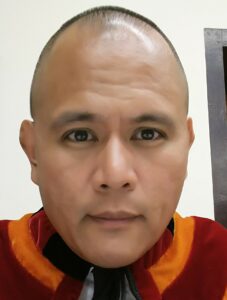 |
Larson Ng is an Educational Specialist in the College of Education. As the director of the Hawaiian Education and Leadership Institute, he actively conducts and publishes research in the fields of business and economic sustainability literacy and curriculum development as well as Native Hawaiian education policy and program evaluation, leadership curriculum and professional development, and education during the Hawaiian Kingdom era. As part of the graduate faculty, he has and continues to advise, mentor, and teach courses in research methodology and statistics as well as actively incorporates leadership and economic concepts in his teaching with the graduate programs of EDCS and the Education Doctorate in Professional Educational Practice. |
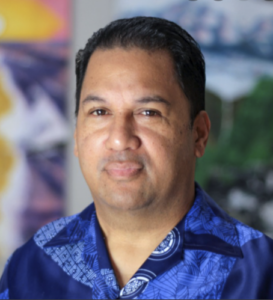 |
Kimo Cashman is a tenured-faculty member in Curriculum Studies and a former teacher at Nānākuli High and Intermediate School. Dr. Cashman serves as co-director for the Aloha ʻAina Education and Leadership track and the National Board Certification Teacher Leader track of the Master’s of Education in Curriculum Studies (MEd-CS) degree program. He also is the director for the Teacher Leader Graduate Certificate program. His research interests are consistent with the programs he directs. |
2022 ECE Summer Institute: Project Work as Learning Journeys - Situating Projects with Children and Families to Cultivate an Enduring Sense of Place and Purpose*
Instructors
Robyn S.B. Chun, Coleen Momohara, & Nalani Mattox-Primacio
Course Dates
June 6 – July 28, 2022 (Hybrid) | CRN: TBA*
* Please contact ece@hawaii.edu to register.
Meeting Times
- Monday, June 6th | 5:30-8:00pm | Zoom Orientation for all Participants
- May 24 – July 10 | Asynchronous On-line | Readings/Assignment 1 for all PDE3 Participants & Credit Students
- July 11-15 | 8:30 am – 4:30 pm HST | Face-to-Face for all Participants
- July 21st & 28th | 5:30 – 8:30 pm HST | Zoom for PDE Participants & Credit Students
Description
This year’s Summer Institute, Project Work as Learning Journeys: Situating Projects with Children and Families to Cultivate an Enduring Sense of Place and Purpose, provides conceptual frames, research and examples to critically inform the intentional design of curriculum in ECE programs. Participants will: 1) explore definitions of curriculum, 2) examine principles underlying prominent integrated curricular approaches, 3) experience the design, implementation, and documentation of a project for adults; and, 4) reflect on implications for carrying out project work with young children and their families.
Mahalo to our co-hosts from the Executive Office on Early Learning and Honolulu Community College.
PDE3 Portfolio Instructors: Phyllis Kawamoto, Dolores Brockman, Kuulei Kaluhiokalani, Tiffany Hirota, Yvette Paglinawan, Malia Sakaki.
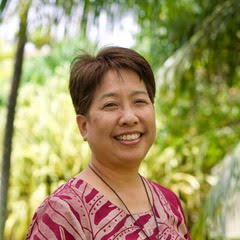 |
Robyn S. B. Chun is the Director of Graduate ECE programs at the University of Hawaii at Manoa. She has over 15 years of experience as a teacher educator in community college, undergraduate and graduate programs and 20 years of experience in programs for young children. Robyn administers, teaches and advises students in the MEd Early Childhood Education program and is involved in multiple collaborative efforts to improve the higher education and professional development infrastructure. Her research interests include Early Childhood Higher Education and Professional Development Systems; Implications of Hawai’i’s Indigenous and Local Culture on Professional Development and Teacher Preparation; Project Work in the Early Years that is situated in place. |
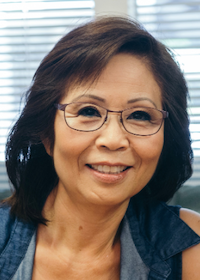 |
Coleen N. O. Momohara currently serves as the Educational Specialist for the Executive Office on Early Learning Prekindergarten Program, overseeing the administrative and professional learning support for Hawaii Department of Education teachers and school administrators and an adjunct instructor for the COE. Her career in early childhood education spans 40 years as an early childhood educator in public and private programs, administrator, and in instructional leadership positions. She leads the instructional team from the Executive Office on Early Learning who co-host the ECE Summer Institute. Among her research interests are: Professional Learning Communities, Teacher Action Research, Early Learning Systems. |
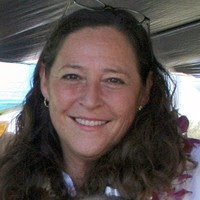 |
Nalani Mattox-Primacio is an alumni and adjunct faculty for the Master in Early Childhood Education program at the University of Hawaiʻi at Mānoa. She is a critical colleague in collaborations with the Hawai’i Executive Office of Early Learning to reorient graduate higher education programs and early childhood educators so they better reflect the place and people in the communities they serve. She has 25 years of experience developing and administrating programs and grants for Native Hawaiian early childhood programs such as Keiki O Ka ‘Aina and Na Kamalei-KEEP. She is also a partner in helping reorient higher education programs to address equity and responsibility in preparing Native Hawaiian leadership for this state. Her research interests include Family, Community, and School Engagement, Family and Child Interaction Learning Programs (0-3), and Native Hawaiian reach on families with young children |
